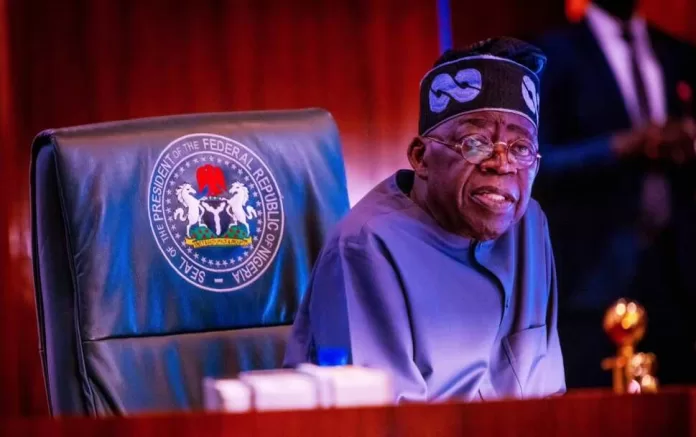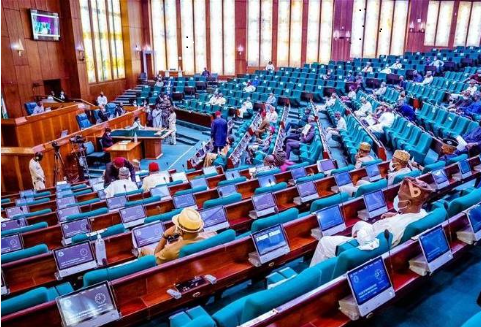Legislators are advocating for a constitutional amendment that would limit the terms of both presidents and governors to just one term.
Single-Term Presidency Bill Stirs Controversy
Abuja, Nigeria A proposed bill titled “The Single Term Presidency Bill” has sparked heated debate among lawmakers and political stakeholders.
Read Also: Tinubu Orders Procurement Bureau DG to Resign
The bill, which seeks to limit the terms of the president, governors, and other elected officials to a single tenure, is causing a significant stir in the political landscape.
Opponents of the bill argue that it goes against the principles of democracy and could potentially hinder the ability of elected officials to fully implement their policies and agendas.
while supporters believe that it will help prevent corruption and promote accountability in government.
The outcome of this contentious debate remains uncertain, as both sides continue to passionately defend their positions.
CUPP Expresses Concern
The Coalition of United Political Parties (CUPP) has voiced concerns about the bill, emphasizing the need for a clear purpose and leadership within the opposition coalition.
CUPP spokesman Adewale Adebayo argued that any amendment to the constitution should be based on a five-year single term for elected officials.
Adebayo further stated that the proposed five-year single term would help to reduce the focus on re-election campaigns and allow elected officials to prioritize serving the people effectively without the distraction of seeking another term in office.
ADP Backs Bill
In contrast to CUPP’s position, Adewale, the National Chairman of the Action Democratic Party (ADP), expressed support for the “Single Term Presidency Bill.”
He believes that a single term of five years would allow leaders to focus on delivering on their promises and improving governance.
Adewale also argues that a single-term presidency would reduce the distractions of re-election campaigns and political maneuvering,
allowing leaders to prioritize the needs of the people and enact meaningful change without being swayed by personal or party interests.
NANS Weighs In
The National Association of Nigerian Students (NANS) has also added its voice to the debate. NANS President, Sunday Asefon, called for a sober reflection on the bill, emphasizing the need for a critical analysis of its potential benefits and drawbacks.
Asefon urged all stakeholders to engage in open and constructive dialogue to ensure that the bill is thoroughly examined and its implications fully understood before any decisions are made.
Formal Tone
In a formal statement, the drafters of the bill argue that limiting the terms of elected officials would reduce the risk of power abuse, promote accountability, and encourage the emergence of new leaders.
They contend that the current system allows for prolonged incumbency, which can lead to stagnation and a lack of fresh ideas.
Furthermore, they believe that term limits would also prevent the entrenchment of political dynasties and foster a more diverse and representative government that truly reflects the will of the people.
By implementing term limits, the drafters hope to create a more dynamic and responsive political landscape that prioritizes the needs and interests of the electorate over the self-serving agendas of career politicians.
Opposition from Incumbents
As expected, the bill has faced opposition from incumbents who fear losing their positions. Several state governors have expressed their disapproval, arguing that it would deprive them of the opportunity to complete ongoing projects and policies.
The bill has also been met with resistance from various industry lobbyists who believe it would disrupt the status quo and harm their interests. Additionally, members of the opposition party have criticized the bill.
claiming it is a partisan attempt to undermine the current administration’s agenda.
Legal and Constitutional Considerations
The proposed bill raises important legal and constitutional questions. It would require an amendment to the Nigerian Constitution, which can only be achieved with the support of two-thirds of the National Assembly and the majority of state assemblies.
The proposed bill raises important legal and constitutional questions as it would require an amendment to the Nigerian Constitution.
a process that can only be achieved with the support of two-thirds of the National Assembly and the majority of state assemblies, making it a complex and challenging task.
Uncertainty Ahead
It’s still unclear what will happen to the ‘Single Term Presidency Bill.’
The bill is currently being debated in the National Assembly, and it is unclear if it will garner the necessary support to pass. Political stakeholders and the general public will be closely monitoring the progress of the bill in the coming months.
It is a contentious issue that has sparked heated debates and divided opinions among lawmakers and citizens alike.
The outcome of this bill could have far-reaching implications for the future of the country’s political landscape. Only time will tell if the bill will ultimately be successful in reshaping the presidency in our nation.
The proposed “Single Term Presidency Bill” in Nigeria has sparked controversy as critics argue it undermines democracy and limits the power of elected leaders.
The bill seeks to limit the terms of presidents and governors to one term, with supporters believing it will prevent corruption and promote accountability.
The Coalition of United Political Parties (CUPP) has expressed concern, while the Action Democratic Party (ADP) backs the bill. The National Association of Nigerian Students (NANS) has called for a critical analysis of the bill.
The drafters argue that term limits would reduce power abuse and promote accountability. The bill faces opposition from incumbents and industry lobbyists.
and legal and constitutional considerations make its passage a complex and challenging task. The fate of the bill remains uncertain as it is debated in the National Assembly.



